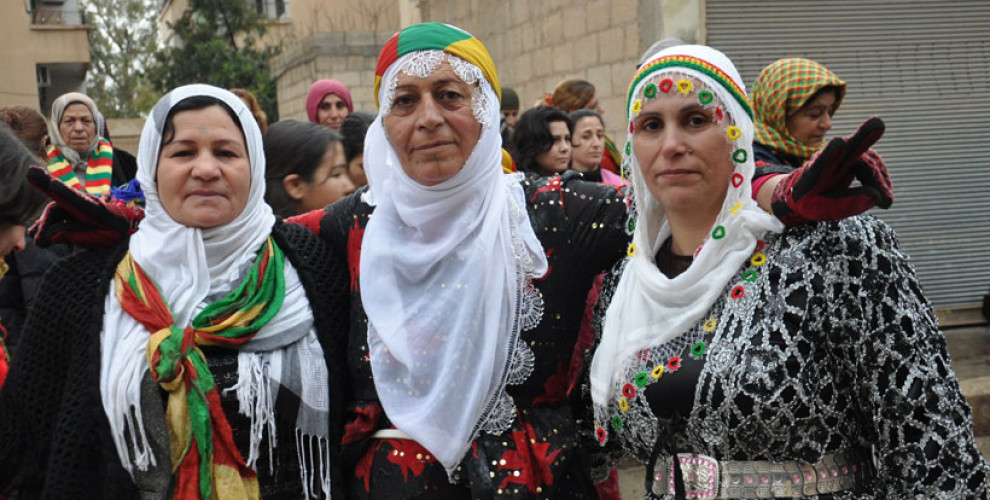Women’s equality is a daily commitment in Rojava
The Ya Basta delegation met the Women Council in Qamishlo.
The Ya Basta delegation met the Women Council in Qamishlo.

The Ya Basta delegation from Bologna (Italy) to the Northern Syria Federation-Rojava visited Qamishlo as well as Kobane and the JINWAR village.
In Qamishlo the delegation met with Amina Omad, representative of Destaya Jin (Women Council) to learn about the work with women carried out in the self-governed liberated territories.
“This is a formal institution representing the governance of the Canton - Amina told the Italian delegation - For the first time, after years of struggle, women are part of the self-administration: we succeeded in making this a reality in the Middle East”.
The delegation is curious about the main activities carried out by the Council on a daily base.
“We are active since 2014 - Amina said - and we follow many projects for and with women. We work especially on the social context. We offer psychological support, projects for widows, orphans and children with disabilities. Despite the financial problems we experience - she added - we are also trying to develop economic and production projects”.
The House for the Defense of Women is one the projects the Council has focused on. “It was crucial for us - Amina told the Italian delegation - to develop a discourse which, starting from the concept of protection, was able to decline this concept in the concrete defence of women forced to flee from their families. I am sure you have seen for yourselves - she added - that our society is still very conservative”.
Amina made some example: “Take a woman who cannot go out alone unless her husband or a man from the family accompanies her. Or take domestic violence, still quite widespread here. In these situations we can shelter the woman for six months. We provide her with all needs during this time, we arrange training courses for her to attend in order to allow her to reach a degree of economic independence.
She acquires new skills and knowledges and this is crucial for her future. We teach women to know themselves, their history as women, and therefore what it means to be free. If you want to be free you must know yourself”.
After six months in this safe environment, the Council organises a meeting with the woman’s family. “We try to create a favourable and peaceful environment so to be able to start a dialogue. During the talks we understand whether there is a possibility for reconciliation. If we are satisfied - said Amina - that all the criteria for reconciliation are met, then we start the process of reincorporation of the woman into her family. Sometimes the family rejects the woman, in which case we extend the shelter and care in our premises for another six months”.
After this further period, another attempt is made to see if reconciliation is possible. If the problems cannot be overcome, then the Council finds a different solution for the woman.
“The main problem we face - said Amina - is the persistence of the patriarchal mentality. In four years we dealt with some 200 cases and so far we have always succeeded in reconciling the women and girls with their families”. Thanks to this meticulous and dedicated work, the Council has contributed to the prevention of domestic violence and also so called ‘honour crimes’.
“We have to remember - said Amina - that the previous legislation meant for example that women were considered as B citizens even by law. Indeed, their testimony was worth a third of that of a man. Practices as polygamy were still widespread. But the new authorities - said Amina proudly - has introduced 30 articles to guarantee women’s rights”.
This is the “Woman Law”, aimed precisely at preventing crimes such as polygamy, forced marriage, child marriage. “At the same time - said Amina - we are introducing laws and rules aimed at guaranteeing and securing rights and protection, for example we introduced civil marriage and equality between women and men in all aspects of life, economic, working (same salary), legal (testimonies now count the same)”.
It is not surprising that the incredibly advanced and progressive “Woman Law” and projects for women are being studied not just in Europe but also in Tunisia, Lebanon, and even by the Assad regime.
* Compiled with material taken from the Ya Basta Bologna delegation to Rojava.